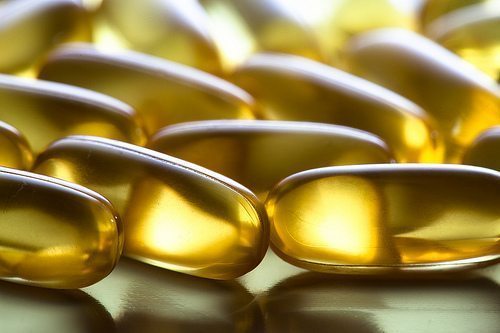 Almost all animals would benefit from essential fatty acids (EFAs). They play a major role in maintaining a healthy coat and skin for dogs, cats and horses. Animal’s cell membranes in their fur, skin and nails are made up of essential fatty acids. Just like us, hormone-like substances are created using EFAs that are important for many bodily functions. One of the most important functions of EFAs is to reduce inflammation.
Almost all animals would benefit from essential fatty acids (EFAs). They play a major role in maintaining a healthy coat and skin for dogs, cats and horses. Animal’s cell membranes in their fur, skin and nails are made up of essential fatty acids. Just like us, hormone-like substances are created using EFAs that are important for many bodily functions. One of the most important functions of EFAs is to reduce inflammation.
EFAs are obtained through food, specifically dietary fat, making dogs, cats and other animals dependent on getting enough essential fatty acids through their food. Animals can become deficient in EFAs if they are not getting enough through their diet, but deficiencies can also occur due to diseases and other health conditions. Deficiency in EFAs can also be caused by an inability to absorb fat or utilize fats, which can happen with disease of the liver or pancreas.
For example, some animals, especially cats, are notorious for inactivity, and often lack the enzymes required to metabolize EFAs. They underutilize EFAs and are highly dependent on getting enough EFAs through their food. Otherwise, problems may arise in their skin, coat and even their coloration.
Symptoms of a deficiency in EFAs include:
• Dull or greasy coat
• Dandruff
• Dry skin
• Eczema or dermatitis
• Hair loss
• Sores on the skin
• Inflammation in the ears
• Itching, scratching
• Slow healing of wounds
• Weight loss
• Constant licking
• Self-mutilation
• Reduced growth rate
Effective for Treating:
Deficiencies in EFAs are known as Fat-Responsive Dermatosis. Supplementing with EFAs has been very successful offering tremendous health benefits for dogs, cats and horses. EFAs have been shown to prevent and treat many skin conditions in all animals often characterized by itching and inflammation. They reduce inflammation throughout the body, easing pain, swelling and stiffness in the joints. EFAs are also effective for treating:
• Cardiovascular disease
• Atherosclerosis
• Hypertension
• Diabetic neuropathy
• Aging process
Your veterinarian can recommend a good quality fatty acid supplement for your pet. Read the label on your pet’s food bag or container, as many reputable pet food manufacturers are incorporating EFAs, including:
• Fish oil
• Flax
• Borage
• GLA (Gamma Linolenic Acid)
• ALA (Alpha Linolenic Acid)
• DHA (docosahexaenoic acid)
• EPA (eicosapentaenoic acid)
You may want to supplement your pet’s diet yourself by adding flax or borage oil to their food daily. EFAs are available in chewable capsules that most animals enjoy chewing. Either way, EFAs will help your pet achieve a healthy, shiny, silky coat on the outside and optimum health on the inside.
Reviewed and Approved by Dr. David L. Roberts, DVM
Photo: Courtesy of jcoterhals via Flickr (CC by 2.0)









